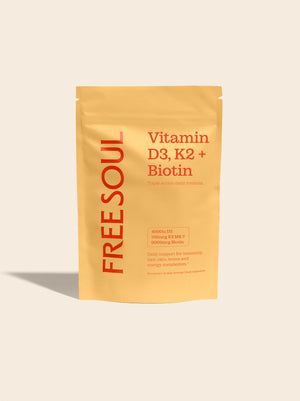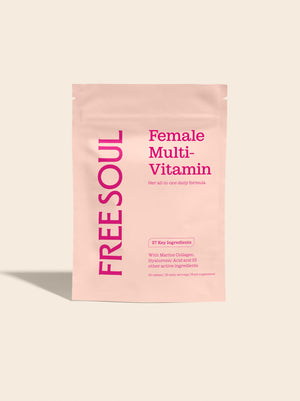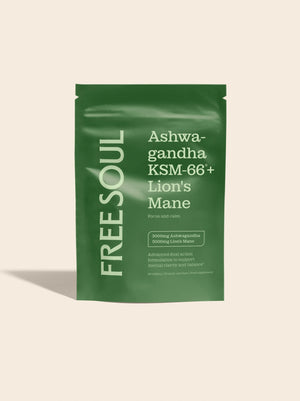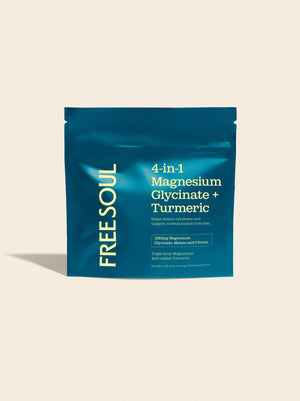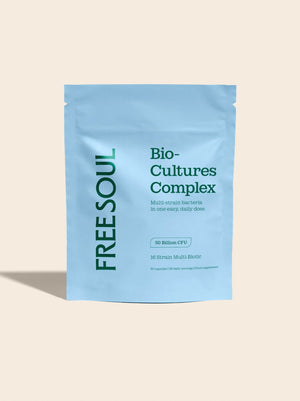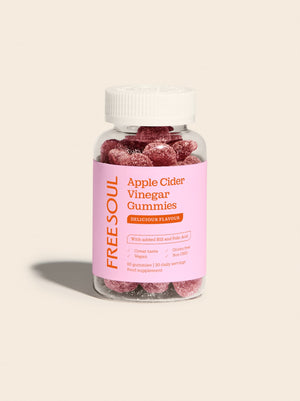In a world flooded with health and wellness advice, we can often feel bombarded with information and not know where to turn. Here at Free Soul, we are dedicated to bringing you the best resources to support you in your wellness journey.
One of our most frequently asked questions is ‘Can women take protein powders? And the answer is, yes! Protein is an important building block of women’s health, and plays a crucial role in our overall well-being, contributing to everything from muscle development to hormonal balance.
Registered Nutritional Therapist, Marilia Chamon, debunks common misconceptions around taking protein and provides science-based insights into the role of protein in our daily lives.
Common Protein Myths
Myth 1: Protein Powder is Just for Men
Protein is a fundamental nutrient for everyone, regardless of gender. Women, just like men, require adequate protein for muscle repair, hormonal function, and overall health. Protein powders offer a convenient way to meet these needs, especially for those with busy lifestyles.
Myth 2: Protein Powder Makes You Bulky
Becoming bulky from protein powder is a common misconception. Muscle growth requires a combination of consistent strength training and a specific diet. Protein powder alone does not lead to excessive muscle gain; it supports muscle repair and growth as part of a balanced diet.
Myth 3: Protein Powder Makes You Gain Weight
Protein can actually aid in weight management. It's satiating, which means it can help you feel full longer and potentially reduce overall calorie intake. Weight gain occurs when you consume more calories than you burn, not simply from consuming protein powder.
Myth 4: Protein Powder Causes Breakouts and Acne
There's no direct link between protein powder and skin breakouts. However, if you have sensitivities to certain ingredients like dairy (common in whey protein), you might experience skin issues. Opting for a plant-based protein can be a great alternative.
Myth 5: Protein Powder is Bad for Your Gut
Protein powder in itself is not harmful to gut health. However, it's important to be cautious of protein powders that contain additives, preservatives, and emulsifiers. These ingredients can potentially disrupt the gut microbiome. Opting for protein powders with minimal and natural ingredients can help in avoiding any negative impact on the gut.
Myth 6: Protein Powder Causes Stomach Issues, Bloating, and Cramps
Common concerns around protein powder involve digestive discomfort, such as bloating and cramps. These issues are often linked to the type of sweeteners used. For instance, synthetic sweeteners like sucralose, commonly found in many protein powders, can cause stomach issues and bloating for some people. This is where the importance of choosing the right sweetener comes in. Free Soul’s Vegan Protein Blend uses stevia, a natural plant-based sweetener that is generally well-tolerated by the gut.
Myth 7: Protein Powders are Artificial and Contain Fillers/Bulking Agents and Artificial Sweeteners
Debunked: While some brands may use additives, there are many high-quality protein powders available that are free from artificial sweeteners, fillers, and bulking agents. Always read labels to ensure you're choosing a product that aligns with your health goals.
Myth 8: Heating or Cooking Protein Powder Destroys It/It’s No Longer Effective
Debunked: Protein structure may change when heated, but it doesn’t lose its nutritional value. You can enjoy protein powder in cooked or baked recipes without worrying about reducing its effectiveness.
Myth 9: You Can Only Have Protein After a Workout
Debunked: While it's beneficial to consume protein post-workout for muscle recovery, your body needs protein throughout the day for various functions. There's no wrong time to incorporate protein powder into your diet.
Myth 10: Vegan Protein is Not as Good as Whey Protein
Debunked: Vegan protein powders have come a long way in terms of nutritional value and digestibility. Free Soul offers a complete amino acid profile and is an excellent alternative for those avoiding dairy or following a plant-based diet.





